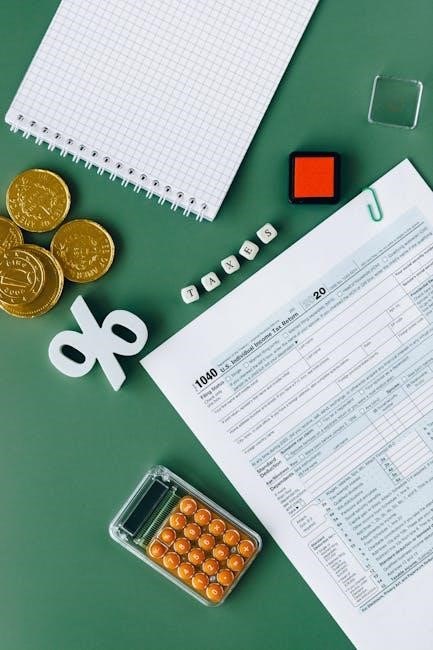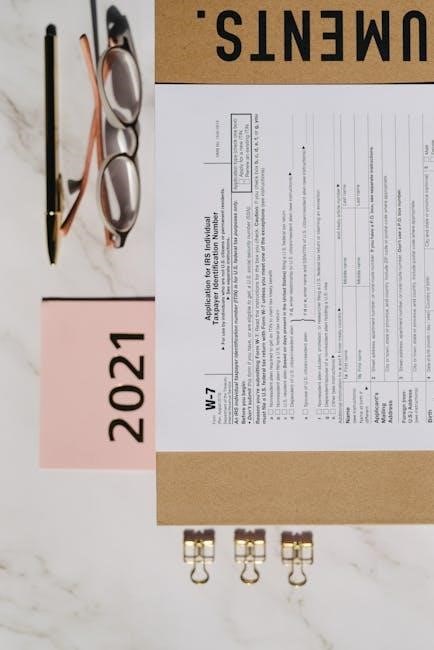The “Malfunction: See Owners Manual” warning in Nissan Rogue vehicles is a generic alert indicating a system issue, often related to ADAS, sensors, or software glitches. It signals potential problems that require immediate attention to ensure safety and prevent further damage. Consulting the manual is the first step toward diagnosing and resolving the issue effectively.
1.1 Understanding the Generic Alert

The “Malfunction: See Owners Manual” warning is a generic alert indicating a system issue in your Nissan Rogue. It appears when the vehicle detects a problem with advanced driver-assistance systems (ADAS), sensors, or software; This broad warning doesn’t specify the exact issue but signals that something is wrong. Common triggers include sensor malfunctions, software glitches, or system failures. While it’s not specific, the alert is serious and requires attention to ensure safety and prevent further damage. Consulting the owner’s manual is the first step to understanding potential causes and solutions for this alert.

1.2 Importance of Addressing the Warning
Addressing the “Malfunction: See Owners Manual” warning is crucial for maintaining your Nissan Rogue’s performance and safety. Ignoring this alert can lead to system failures, reduced vehicle control, and increased risk of accidents. Advanced safety features like lane departure warning and forward collision alert may malfunction, compromising driver and passenger safety. Prompt action ensures these systems function correctly, preventing potential hazards on the road. Regular checks and timely repairs also protect your investment by avoiding costly damages. Always prioritize resolving this warning to maintain reliability and ensure your vehicle operates as intended.
Common Causes of the Malfunction Warning
The “Malfunction: See Owners Manual” warning in Nissan Rogue vehicles often stems from issues like ADAS control unit problems, sensor malfunctions, or software glitches. These faults can disrupt advanced safety features, leading to system failures and the warning alert. Addressing these issues promptly is essential to restore proper vehicle function and safety.
2.1 ADAS Control Unit Issues
ADAS (Advanced Driver-Assistance Systems) control unit problems are a common cause of the “Malfunction: See Owners Manual” warning in Nissan Rogue vehicles. The ADAS system manages features like adaptive cruise control, lane departure warning, and automatic emergency braking. If the control unit fails, these systems can malfunction, triggering the warning. Symptoms may include erratic system behavior, loss of functionality, or unexpected alerts. In some cases, the vehicle may shake or lose power, as reported by some owners. While sensor issues are often suspected, the root cause may lie within the ADAS control unit itself, requiring professional diagnosis and repair. Consulting the manual or a dealership is recommended for accurate troubleshooting and resolution.
2.2 Sensor Malfunctions
Sensor malfunctions are a common trigger for the “Malfunction: See Owners Manual” warning in Nissan Rogue vehicles. The car relies on sensors, such as radar and cameras, to enable advanced safety features like adaptive cruise control and lane departure warning. If these sensors are obstructed, damaged, or malfunctioning, the system can fail, prompting the warning. Symptoms may include false alerts or the deactivation of safety features. In some cases, users have reported that cleaning dirty sensors resolved the issue. However, persistent problems may indicate a deeper system failure, requiring professional inspection and repair to restore functionality and safety. Always consult the manual for guidance.
2.3 Software Glitches
Software glitches are a common cause of the “Malfunction: See Owners Manual” warning in Nissan Rogue vehicles. These issues often stem from the ADAS system, which relies on complex software to operate. Glitches can cause unexpected system failures, such as the warning light illuminating without an apparent cause. In some cases, users have reported that the vehicle shakes or loses power, necessitating a tow to the dealership. While some software-related problems may resolve with a system reset, others require updates or reinitialization. Always consult the manual for guidance, and seek professional help if the issue persists to ensure proper resolution and safety. Regular software updates can help prevent such glitches.
2.4 CVT System Problems
The “Malfunction: See Owners Manual” warning can also indicate issues with the Continuously Variable Transmission (CVT) system in Nissan Rogue vehicles. This warning typically illuminates when the CVT system detects a problem, such as abnormal transmission performance or sensor malfunctions. Drivers may experience symptoms like erratic shifting, reduced power, or the vehicle defaulting to neutral. It is crucial to have the system checked by a Nissan dealer, as CVT issues can lead to further damage if left unaddressed. Always refer to the owners manual for guidance and seek professional assistance to ensure proper diagnosis and repair of the CVT system.
2.5 Blind Spot Warning/Lane Departure Warning System Failures
Faults in the Blind Spot Warning (BSW) or Lane Departure Warning (LDW) systems can trigger the “Malfunction: See Owners Manual” alert in Nissan Rogue vehicles. These systems rely on sensors and cameras to monitor the vehicle’s surroundings. Issues such as dirty or obstructed sensors, software glitches, or wiring problems can cause system failures. When these systems malfunction, drivers may lose critical safety alerts, increasing the risk of accidents. It is essential to clean sensors, check connections, and update software to resolve these issues promptly. If problems persist, consulting a Nissan technician is recommended to ensure proper system functionality and safety.
2.6 Forward Collision Warning System Malfunctions
The Forward Collision Warning (FCW) system in Nissan Rogue vehicles may malfunction, triggering the “Malfunction: See Owners Manual” alert. This system uses sensors and cameras to detect potential frontal collisions. Issues like obstructed sensors, software glitches, or faulty wiring can cause the FCW to fail. When this happens, the system may not alert the driver to potential collisions, increasing accident risk. Cleaning sensors, checking connections, and updating software can often resolve the issue. If problems persist, professional diagnosis is recommended to ensure the FCW system functions correctly and provides critical safety alerts when needed.

Troubleshooting Steps
Start by consulting the owner’s manual for guidance. Use an OBD-II scanner to identify diagnostic trouble codes (DTCs). Check and reset the system if possible.
3.1 Consulting the Owners Manual
The owner’s manual is the first step in addressing the “Malfunction: See Owners Manual” warning. It provides detailed explanations of dashboard lights and potential causes, such as CVT errors or sensor issues. Referencing the manual helps identify specific systems affected, like the Blind Spot Warning or Forward Collision Warning. It may also offer troubleshooting guidance or recommend resetting the system. Always check the manual before attempting DIY repairs to avoid further complications. If unsure, proceed to the next troubleshooting steps, such as using an OBD-II scanner or contacting a professional.
3.2 Using an OBD-II Scanner
An OBD-II scanner is a valuable tool for diagnosing the “Malfunction: See Owners Manual” warning. Connect the scanner to your Nissan Rogue’s OBD-II port, typically located under the dashboard. It retrieves diagnostic trouble codes (DTCs) stored in the vehicle’s computer, providing specific insights into the issue. Common codes like P0606 or P0607 may indicate software glitches or system malfunctions. This data helps pinpoint whether the problem lies in the ADAS, sensors, or other components. After scanning, address the identified issues or consult a professional if the codes suggest complex system failures. This step is crucial for accurate troubleshooting and effective repairs.
3.3 Checking for Diagnostic Trouble Codes (DTCs)
After using an OBD-II scanner, retrieve the diagnostic trouble codes (DTCs) to identify the specific issue causing the “Malfunction: See Owners Manual” warning. These codes, such as P0606 or P0607, provide detailed information about system malfunctions, whether it’s related to ADAS, sensors, or software glitches. Reviewing the codes helps determine if the problem is with the CVT system, blind spot warning, or forward collision alert. Once identified, refer to the owner’s manual or consult a professional to address the issue effectively. This step is essential for pinpointing the root cause and ensuring proper repairs. Accurate DTC analysis is key to resolving the malfunction promptly and safely.
3.4 Resetting the System
Resetting the system can sometimes clear the “Malfunction: See Owners Manual” warning. Start by turning the ignition to the “ON” position, then back to “OFF,” and repeat this process. If this doesn’t work, disconnect the battery for 10-15 minutes to reset the vehicle’s computer. For advanced resets, use an OBD-II scanner to clear codes and reboot the system. While resetting may temporarily resolve the issue, it’s not a permanent fix. If the warning reappears, professional diagnosis is necessary to address underlying problems. Avoid ignoring recurring malfunctions, as they may indicate serious system failures requiring immediate attention.

When to Seek Professional Help
Seek professional help if the “Malfunction: See Owners Manual” warning persists after basic troubleshooting or if severe system failures occur, ensuring safety and proper repairs.
4.1 Identifying Severe System Failures
Severe system failures in Nissan Rogue vehicles may include persistent warning lights, loss of vehicle control, or critical system malfunctions like ADAS or CVT failures. If the vehicle shakes, loses power, or automatically shifts gears, immediate professional assistance is crucial. Ignoring these signs can lead to safety hazards or costly repairs. Consulting a Nissan dealer or certified technician ensures proper diagnosis and resolution, preventing further damage and maintaining vehicle reliability.

4.2 Dealer Recommendations
Nissan dealers are highly recommended for addressing the “Malfunction: See Owners Manual” warning, as they possess the expertise and tools to diagnose and repair complex issues. Dealers can access detailed diagnostic codes, perform software updates, and replace faulty components. They ensure repairs are done with genuine parts, maintaining vehicle warranty and performance. For severe issues like ADAS or CVT malfunctions, visiting a certified Nissan service center is crucial to prevent further damage and ensure safety. Dealerships also provide guidance on preventive maintenance to avoid future problems.
4.3 Avoiding DIY Repairs for Complex Issues
While minor issues might be solvable with DIY methods, complex problems indicated by the “Malfunction: See Owners Manual” warning often require professional expertise. Advanced systems like ADAS, CVT, and sensor networks involve intricate components that are difficult to diagnose without specialized tools. Improper DIY repairs can lead to further damage, safety risks, or voided warranties. It’s advisable to leave such issues to certified technicians who can accurately identify and resolve the root cause, ensuring the vehicle operates safely and efficiently. DIY attempts on critical systems may exacerbate the problem, making professional intervention the safest and most reliable option.
Specific System Malfunctions
The “Malfunction: See Owners Manual” warning often relates to specific systems like ADAS, CVT, or safety features such as Blind Spot Warning or Forward Collision systems, each presenting unique challenges.
5.1 ADAS-Related Issues
ADAS-related issues are a common cause of the “Malfunction: See Owners Manual” warning in Nissan Rogue vehicles. The Advanced Driver Assistance System (ADAS) relies on sensors and software to function properly. If the ADAS control unit malfunctions, it can cause the vehicle to shake, lose power, or even prevent shifting into gear, as reported by some owners. This issue often requires professional diagnosis, as it may involve complex system repairs. Consulting the owners manual is the first step, but severe cases may necessitate a visit to a Nissan dealership for accurate troubleshooting and resolution.
5.2 CVT Error: See Owners Manual
The “CVT Error: See Owners Manual” warning in Nissan Rogue vehicles indicates a problem with the Continuously Variable Transmission system. This alert often appears due to issues such as faulty sensors, software glitches, or mechanical failures within the CVT. Symptoms may include unexpected shifting, loss of power, or the vehicle defaulting to neutral. It is crucial to have the system checked by a Nissan dealer, as DIY repairs can be complex and risky. The owners manual provides initial guidance, but professional diagnosis is typically required to resolve CVT-related malfunctions effectively and ensure the vehicle’s optimal performance and safety.
5.3 Blind Spot Warning System Malfunction
A malfunction in the Blind Spot Warning (BSW) system can trigger the “Malfunction: See Owners Manual” alert in Nissan Rogue vehicles. This issue often arises from faulty sensors, software glitches, or blocked cameras. Symptoms include the BSW light remaining illuminated or false alerts during driving. Cleaning the sensors or restarting the system may resolve minor issues. However, persistent problems require professional diagnosis, as they could indicate deeper electrical or software faults. Consulting a Nissan dealer is recommended to ensure proper repair and maintain the system’s functionality for safe driving conditions. Regular maintenance and software updates can help prevent such malfunctions.
5.4 Lane Departure Warning System Failure
The Lane Departure Warning System (LDWS) failure can trigger the “Malfunction: See Owners Manual” alert in Nissan Rogue vehicles. This system uses cameras to monitor lane markings and alerts drivers if the vehicle drifts out of its lane. A failure may occur due to sensor malfunctions, software glitches, or blocked camera views. Symptoms include the system not alerting during lane drifts or providing false alerts. Cleaning the camera or restarting the system may resolve minor issues. Persistent problems require professional diagnosis, as they could indicate faulty components or software errors. Addressing this issue is crucial for maintaining driver safety and system reliability.
5.5 Forward Collision Warning System Issues
The Forward Collision Warning System (FCW) in Nissan Rogue vehicles may malfunction, triggering the “Malfunction: See Owners Manual” alert. This system uses sensors and cameras to detect potential collisions and alert the driver. Issues often arise from sensor blockage, software glitches, or faulty camera calibration. Symptoms include the system failing to alert during potential collisions or providing false alerts. Cleaning sensors or restarting the system may resolve minor issues. Persistent problems require professional diagnosis, as they could indicate hardware or software failures. Addressing FCW issues is critical to ensure driver safety and prevent accidents. Regular system checks are recommended to maintain functionality.

Preventive Maintenance Tips
Regular software updates, cleaning sensors, and checking system connections can prevent malfunctions. Ensure all components are functioning properly to avoid triggering the “Malfunction: See Owners Manual” warning.
6.1 Regular Software Updates

Regular software updates are crucial for maintaining your Nissan Rogue’s systems. Outdated software can lead to malfunctions, triggering the “Malfunction: See Owners Manual” warning. Staying current ensures optimal performance and addresses potential glitches before they escalate. Dealers often perform these updates during routine maintenance. Additionally, updates can improve functionality and compatibility, reducing the risk of system failures. Always check for the latest software versions and install them promptly to keep your vehicle running smoothly and avoid unnecessary warnings.
6.2 Cleaning Sensors
Cleaning your Nissan Rogue’s sensors is a simple yet effective maintenance step. Dirt, debris, or moisture on radar, camera, or ultrasonic sensors can trigger the “Malfunction: See Owners Manual” warning. Regularly inspect and clean these sensors using a soft cloth and avoid harsh chemicals. Ensure they are free from obstructions, as blocked sensors can disrupt advanced driver-assistance systems like adaptive cruise control or lane departure warning. Clean sensors improve system accuracy and reduce the likelihood of false warnings. This proactive approach helps maintain reliable vehicle performance and safety on the road.
6.3 Checking System Connections
Checking system connections is crucial for resolving the “Malfunction: See Owners Manual” warning in your Nissan Rogue. Loose or corroded wiring, faulty connectors, or damaged harnesses can disrupt communication between sensors and control units. Inspect all relevant connectors, especially for ADAS, CVT, and sensor systems. Ensure they are securely plugged in and free from corrosion. If you find any issues, clean or replace the connections as needed. Properly functioning connections are essential for accurate system operation and preventing false warnings. Regular checks can help maintain reliability and avoid unexpected malfunctions while driving.
Real User Experiences
Nissan Rogue owners have reported various instances of the “Malfunction: See Owners Manual” warning, often linked to ADAS, CVT, or sensor issues. Many shared stories of sudden system failures, including the 2022 Rogue SV with ADAS control unit problems and a 2021 model experiencing similar alerts. Some users noted issues with cruise control activation, while others faced unexpected power loss and transmission malfunctions. These experiences highlight the importance of prompt action and professional diagnosis to resolve the underlying causes effectively.
7.1 Case Study: 2022 Nissan Rogue SV
A 2022 Nissan Rogue SV owner experienced the “Malfunction: See Owners Manual” warning, accompanied by sudden shaking and loss of power. The vehicle automatically shifted to neutral, preventing the driver from selecting “D.” The issue was diagnosed as a faulty ADAS control unit, not sensor dirt, as initially suspected. The owner had to tow the vehicle to the dealership for repairs. This case highlights how critical it is to address such warnings promptly, as they can indicate serious system failures requiring professional intervention to ensure safety and maintain vehicle performance.
7.2 Common Complaints and Solutions
Nissan Rogue owners frequently report the “Malfunction: See Owners Manual” warning, often linked to ADAS issues, sensor malfunctions, or software glitches. Many have found success by using OBD-II scanners to identify diagnostic trouble codes, which guide repairs. Resetting the system or updating software can resolve some problems. However, severe cases, like faulty control units, require dealership intervention. Owners emphasize the importance of consulting the manual and seeking professional help when necessary to avoid further complications and ensure safety on the road.
7.3 Community Feedback and Advice
Nissan Rogue owners share valuable insights and advice for addressing the “Malfunction: See Owners Manual” warning. Many recommend starting with basic troubleshooting steps, such as checking sensors and ensuring software is up-to-date. Some owners suggest using OBD-II scanners to identify specific issues before visiting a dealership. Community forums highlight the importance of consulting the manual and seeking professional help for complex problems. Several users advise against ignoring the warning, as it can lead to safety risks. Overall, the community emphasizes proactive maintenance and timely repairs to prevent further complications and ensure reliable vehicle performance.

The “Malfunction: See Owners Manual” warning in Nissan Rogue vehicles signals potential system issues requiring prompt attention. Addressing it ensures safety, prevents damage, and maintains optimal performance.
8.1 Summary of Key Points
The “Malfunction: See Owners Manual” warning in Nissan Rogue vehicles indicates a system issue, often related to ADAS, sensors, or software. Common causes include ADAS control unit problems, sensor malfunctions, and CVT system errors. Addressing the warning promptly is crucial for safety and to prevent further damage. Consulting the owner’s manual and using diagnostic tools like an OBD-II scanner can help identify specific issues. In severe cases, professional assistance is recommended. Regular maintenance, such as software updates and sensor cleaning, can prevent future malfunctions. Real user experiences highlight the importance of timely action to ensure vehicle reliability and driver safety.
8.2 Final Recommendations for Nissan Rogue Owners
Nissan Rogue owners should prioritize regular maintenance, including software updates and sensor cleaning, to prevent malfunctions. Always consult the owner’s manual for guidance when warnings appear. Use an OBD-II scanner to identify issues and address them promptly. For severe problems, such as ADAS or CVT system failures, seek professional help from a Nissan dealer. Stay informed through online forums and community feedback for troubleshooting tips. By taking proactive steps, owners can ensure their vehicle’s reliability, safety, and longevity. Addressing warnings promptly helps avoid costly repairs and maintains optimal performance.
Additional Resources
For further assistance, Nissan Rogue owners can contact dealerships, explore online forums, or utilize professional diagnostic services for specialized support and reliable solutions.
9;1 Nissan Dealer Contact Information
Nissan dealerships are a primary resource for addressing the “Malfunction: See Owners Manual” warning. Visit the official Nissan website to locate your nearest dealer. Contact their service department directly for professional diagnostics and repairs. You can also reach Nissan’s customer service at 1-800-NISSAN-1 for assistance. Additionally, the Nissan Connect app offers convenient access to support and service scheduling. Ensure to provide your vehicle’s details for accurate guidance. Dealerships are equipped with specialized tools and knowledge to resolve complex issues efficiently, ensuring your safety and vehicle performance.
9.2 Online Forums and Communities
Online forums and communities are invaluable resources for Nissan Rogue owners facing the “Malfunction: See Owners Manual” warning. Platforms like Reddit, Facebook groups, and specialized automotive forums host discussions where owners share experiences and solutions; Many users have reported resolving issues by following advice from these communities, such as cleaning sensors or updating software. These forums also provide real-time support, allowing owners to troubleshoot and understand when professional help is necessary. Engaging with these communities can offer practical insights and temporary fixes while awaiting dealership assistance, fostering a sense of collaboration among Nissan Rogue enthusiasts.
9.3 Professional Diagnostic Services

Professional diagnostic services are essential for resolving complex “Malfunction: See Owners Manual” issues in Nissan Rogue vehicles. Certified technicians at Nissan dealerships or specialized auto shops use advanced tools to identify and repair system failures. They can address ADAS-related problems, sensor malfunctions, and software glitches effectively. Additionally, third-party services, like tech support specialists, offer expert assistance for troubleshooting and repairs. These professionals provide detailed diagnostics, ensuring your vehicle operates safely and efficiently. Consulting a professional is crucial when DIY methods fall short, especially for critical systems like forward collision warning or lane departure alerts, to prevent further damage and ensure reliability.








































